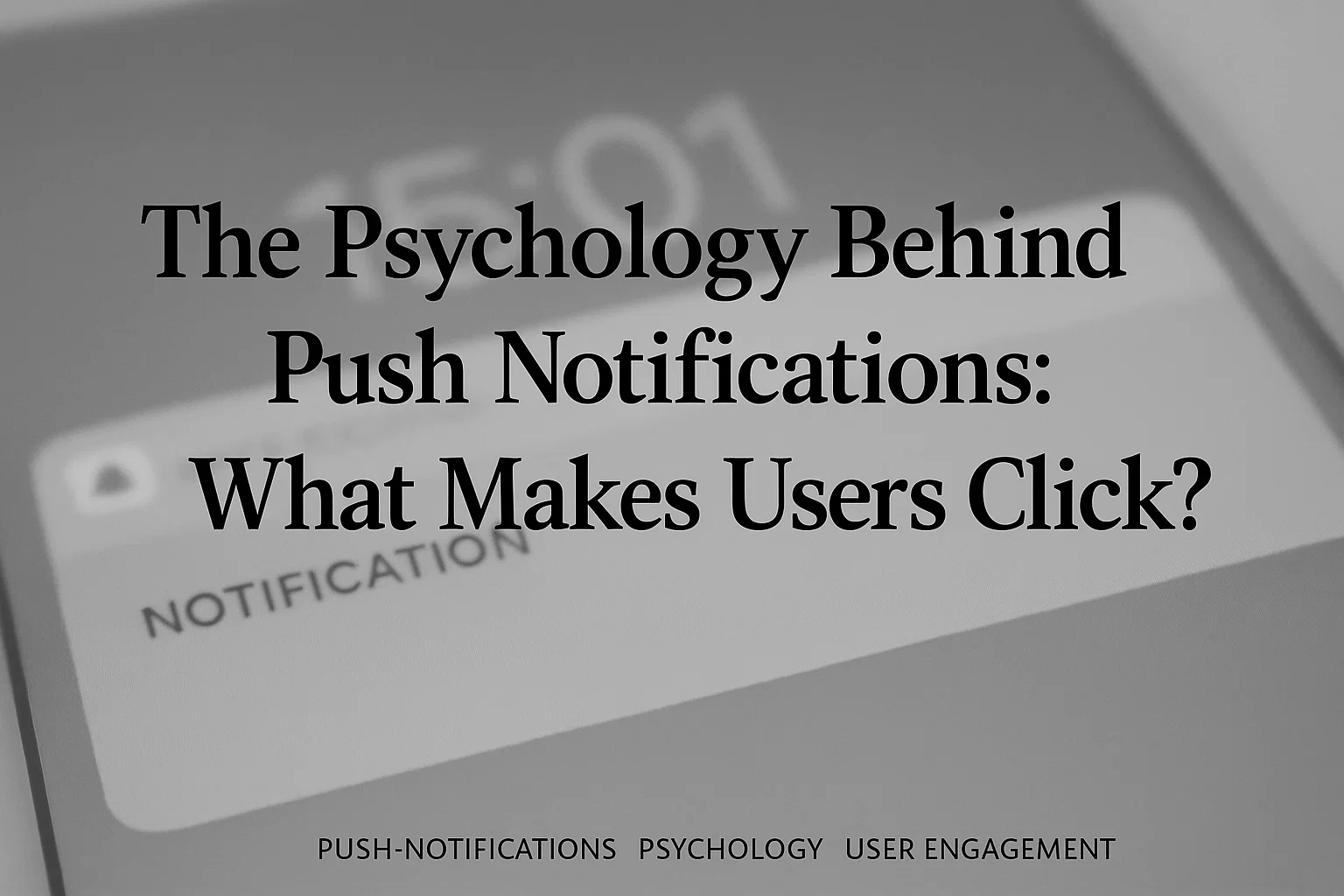
2025-12-13

Push notifications have become a powerful tool to engage users, but what really drives someone to tap or click on them? Understanding the psychology behind user behavior can help you craft notifications that not only get seen but inspire action.
Users are more likely to respond when notifications arrive at the right moment. Notifications sent during active hours or when users are already engaged with your app or website have a higher chance of being clicked.
Tailoring notifications based on user behavior, preferences, or location makes messages feel relevant and valuable. Personalized content can reduce annoyance and increase trust, leading to better engagement.
Messages that create a sense of urgency or scarcity — like limited-time offers or important updates — prompt users to act immediately rather than postponing.
Users decide within seconds if a notification is worth their attention. Clear, direct language and strong calls to action increase the likelihood of clicks.
Offering rewards, discounts, or exclusive content motivates users to open notifications. People respond well to incentives that provide tangible benefits.
Regular and consistent notifications can become part of a user’s routine, but be careful not to overdo it. Too many notifications lead to fatigue and opt-outs.
Rich media like images, emojis, or interactive buttons can capture attention and make notifications more engaging.
Understanding these psychological triggers helps marketers and developers create push notifications that respect users’ attention and boost engagement. By combining perfect timing, personalization, urgency, and value, your notifications become less intrusive and more effective.